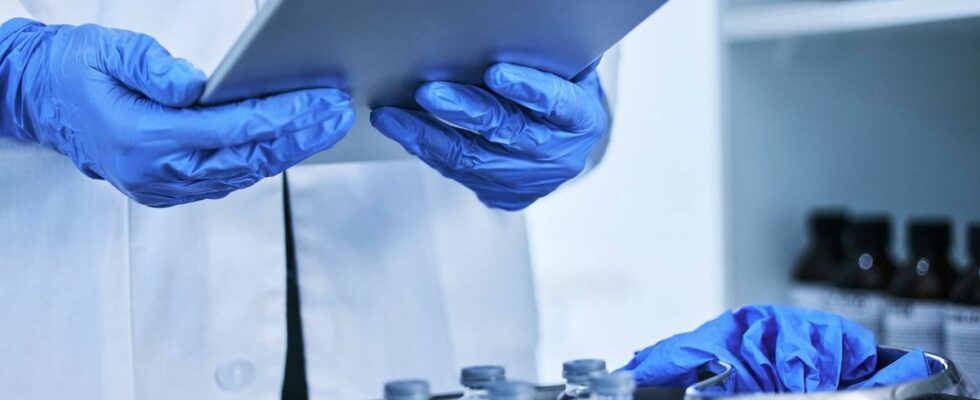Published on
updated on
Reading 2 min.
Against all expectations, French authorities have refused early access to the drug Qalsody (Tofersen) for patients suffering from amyotrophic lateral sclerosis (ALS) with a mutation in the SOD1 gene. A procedure that provokes the anger of patients and associations.
If the drug Qalsody had been approved in recent months by the American and European health authorities, and it constituted a source of hope for patients suffering from amyotrophic lateral sclerosis (ALS) with mutation of the SOD1 gene, the High Authority for Health decided to refuse early access to this treatment. For theassociation for ALS research (ARSLA), the main French association fighting against the disease, this decision creates a “profound inequality of treatment” for all these sick people.
An essential treatment for the sick
Amyotrophic lateral sclerosis (ALS) or Charcot disease is a neurodegenerative disease that leads to progressive paralysis and then death of the patient.
Among patients, 2% of them are affected by a specific genetic mutation: ALS-SOD1 in which mutations in the SOD1 gene lead to the creation of a toxic form of the SOD1 protein causing the degeneration of motor neurons. .
However, the drug Qalsody, based on the tofersen molecule, is currently “the only treatment targeting the genetic cause of this rare and deadly form of ALS“, affirms ARSLA in a press release.
In France, several dozen patients have so far benefited from compassionate access to this drug, authorized in 2022 by the National Medicines Safety Agency (ANSM).
“However, this recent decision, based on clinical evaluations deemed insufficient, now leaves them without certainty regarding the continuation of their treatment, which is nevertheless essential for them. further details the organism.
Qalsody: a mixed benefit?
Indeed, French health authorities rejected the approval of Qalsody, developed by the Biogen laboratory, due to the lack of sufficient data to prove its effectiveness.
More precisely, the study carried out by the international company Biogen and published in 2022 in the New England Journal of Medicine (NEJM)had not demonstrated a significant slowing of the symptoms of the disease.
“This medication is not likely to fill a medical need that is insufficiently covered“, confirmed this week the High Authority of Health (HAS).
Concretely, what does this change for patients?
The lack of early access to treatment deprives patients of the possibility of obtaining reimbursement for this medicine.
“Implemented on July 1, 2021, early access authorization allows patients rapid, reimbursed access to medications that are not yet authorized or covered under common law. These early access authorizations are granted by the High Authority for Health (HAS), following an opinion from the National Agency for the Safety of Medicines and Health Products (ANSM) relating to the presumption of effectiveness and product safety or marketing authorization“, confirms the National Order of Pharmacists.
A refusal, which generates a “precarious situation for patients who had noted stability in their motor and respiratory functions thanks to Qalsody“, deplores the Association for Research on ALS (ARSLA).
“These patients now find themselves faced with a difficult choice: risk seeing their condition deteriorate or consider solutions abroad, with the constraints and costs that this entails.“, alerts the ARSLA, which calls on the authorities to “reconsider this decision“.

